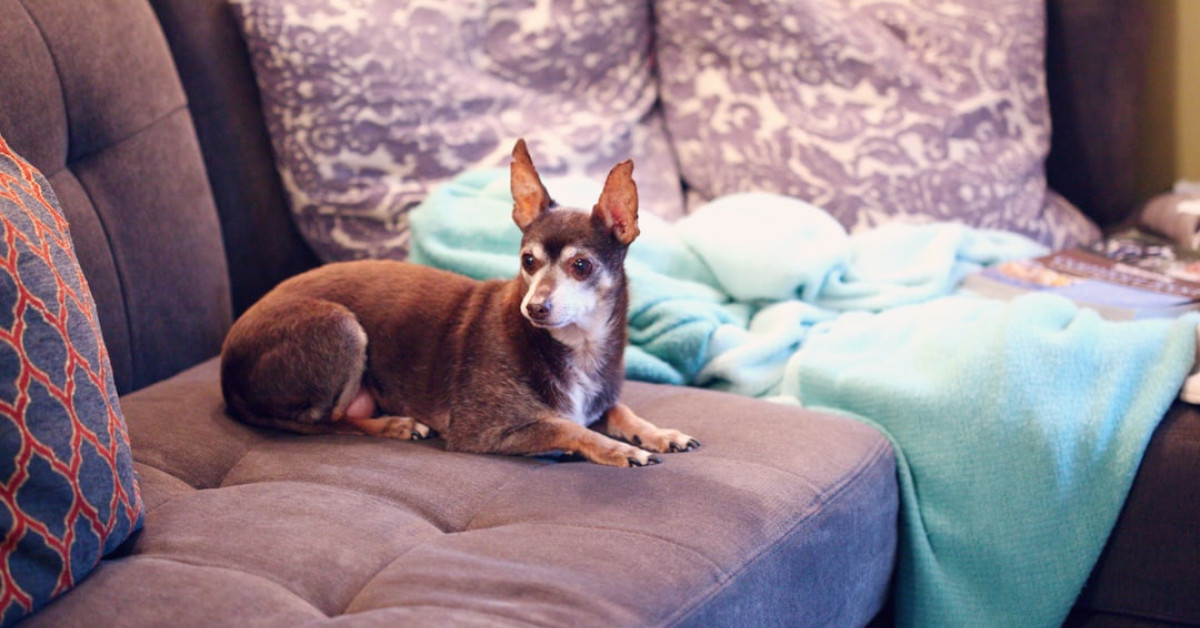The Delightful Rat-Cha: Chihuahua and Rat Terrier Mix
I remember the first time I laid eyes on a Rat-Cha. I was strolling through the park with my sister, Sarah, when we came across this tiny, spirited dog with ears too large for its head, a perky tail, and eyes that seemed to hold endless stories. My sister and I couldn’t resist stopping to ask the owner about this adorable creature. That was the moment I became enchanted by the Rat-Cha—a charming mix of Chihuahua and Rat Terrier.
Breed Characteristics
Wondering what makes a Rat-Cha stand out? First things first, this breed isn’t just about good looks. Rat-Chas are a fascinating blend of their parent breeds, inheriting features and traits from both the Chihuahua and the Rat Terrier.
Physically, they usually weigh between 10-15 pounds and can grow up to 12-18 inches tall. Their coat varies; it can be short and smooth like a Rat Terrier’s or slightly longer, reminiscent of a Chihuahua’s coat. You may find them in a variety of colors—from black and tan to brown or a delightful mix. Their distinctive ears, often large and upright, give them a perpetually alert expression, as if they’re always on the lookout for the next big adventure.
Temperament and Behavior
Rat-Chas are known for being spunky and spirited. These little dogs are bursting with energy and mischief. I once met a Rat-Cha named Sparky—how fitting!—at my friend Mark’s place. Despite his small size, Sparky ruled the household with boundless energy and a personality that more than made up for his stature.
These dogs are loyal and affectionate, but they also come with a dose of independence. While they enjoy being around people, they might also want their own space, a trait inherited from the Rat Terrier side. They’re quite intelligent, making training a breeze although, at times, they can be a tad stubborn. With a bit of patience—a must with any training program—you can teach a Rat-Cha a plethora of tricks and commands.
Training Your Rat-Cha: A Journey of Patience and Reward
Training a Rat-Cha is an interesting adventure. These dogs are incredibly smart, but they have a mind of their own. My cousin, Ellie, had quite the experience training her Rat-Cha, Peanut. It wasn’t always smooth sailing; there were moments when Peanut decided he had better things to do than sit and stay. But with consistent training and positive reinforcement, Ellie managed to teach Peanut a range of tricks, from fetching her slippers to playing dead—a crowd favorite at family gatherings!
Socialization: A Key to a Well-Behaved Rat-Cha
Like all dogs, Rat-Chas benefit significantly from early socialization. Introducing them to various people, pets, and environments can help them develop into well-rounded adults. I recall taking my friend’s Rat-Cha, Bella, to the dog park for the first time. Initially, she was a bit wary, but soon enough, she was romping around, making friends with dogs twice her size. It’s heartwarming to see the confidence of a well-socialized Rat-Cha.
Health and Care
Rat-Chas are generally healthy dogs, but they can inherit certain health issues from their parent breeds. One common condition is patellar luxation, a knee joint issue often seen in smaller dogs. Regular vet check-ups are crucial to keep them in good shape.
Diet: Fueling the Energetic Rat-Cha
Feeding a Rat-Cha requires a balanced approach. These dogs are balls of energy, so they need a diet rich in proteins and healthy fats to maintain their vigor. Avoid overfeeding, though; it’s easy for these little dynamos to pack on extra pounds. I always recommend consulting with your vet to find the best diet plan. My friend Jenna’s Rat-Cha, Milo, loves his vet-approved kibble mixed with a bit of wet food. Keeps him bouncing off the walls!
Grooming: Keeping That Coat Gleaming
Grooming a Rat-Cha isn’t too demanding. Regular brushing—about once a week—will suffice to keep their coat in good condition. If their coat is more like a Rat Terrier’s, you might even get away with less frequent grooming. However, pay attention to dental hygiene; these small dogs are prone to dental problems. Brushing their teeth regularly can prevent complications later on.
Rat-Chas in Family Life
When it comes to blending into family life, Rat-Chas can be wonderful companions. They’re affectionate and get along well with children, although, given their small size, it’s crucial to supervise interactions with very young kids to prevent accidental injuries. My neighbor’s kids absolutely adore their Rat-Cha, Gizmo. He’s like a little shadow, following them around and participating in all their adventures—whether it’s a backyard treasure hunt or a cozy reading session in the living room.
Rat-Chas also tend to get along with other pets, thanks to their relatively social nature. Introducing them gradually to other household animals can lead to harmonious co-existence. I’ve seen many families with cats and Rat-Chas living together happily.
Rat-Chas: The Urban and Suburban Dweller
One of the best things about Rat-Chas is their adaptability. They can thrive in both city apartments and suburban homes. Their small size makes them perfect for apartment living, provided they get their daily dose of exercise. My friend Greg, who lives in a bustling city, has a Rat-Cha named Scout. Despite the busy streets and the limited space, Scout is a happy and healthy pup, thanks to their regular walks and play sessions at the local dog park.
For those with more space, Rat-Chas will enjoy a good romp in the backyard. They can chase after toys, burrow into soft ground, and just bask in the sunlight. I often see my aunt’s Rat-Cha, Daisy, delightfully exploring every nook and cranny of their spacious yard.
Fun Facts about Rat-Chas
- Did you know that the Chihuahua, one of the Rat-Cha’s parent breeds, is one of the oldest dog breeds in the Americas? The Rat Terrier, on the other hand, was a favorite among US farmers for controlling pests in the early 20th century!
- Contrary to their size, Rat-Chas have a hearty bark and can make excellent watchdogs.
Should You Get a Rat-Cha?
So, are you thinking about adding a Rat-Cha to your family? These dogs are charming, intelligent, and have an infectious zest for life. But they’re not for everyone. If you’re ready for the commitment—both time-wise and emotionally—a Rat-Cha can be a delightful addition to your household.
Considering their needs in terms of exercise, training, and socialization is crucial. However, if you can meet these requirements, you’ll find yourself with a loyal and loving companion. They’re also relatively low-maintenance when it comes to grooming—an added bonus!
Personal Reflection
Overall, Rat-Chas have a unique charm that’s hard to resist. These lovable mixed breeds bring the best of both Chihuahua and Rat Terrier worlds. From their quirky looks to their vivacious personalities, there’s never a dull moment with a Rat-Cha around. Reflecting back, meeting that Rat-Cha in the park with Sarah added an unexpected but cherished interest in my life. How many dog breeds can boast such a rich combination of history and character packed into such a small frame?
Thanks for reading about these amazing little dogs. Remember, life is better with a tail-wagging friend by your side! 🐾










